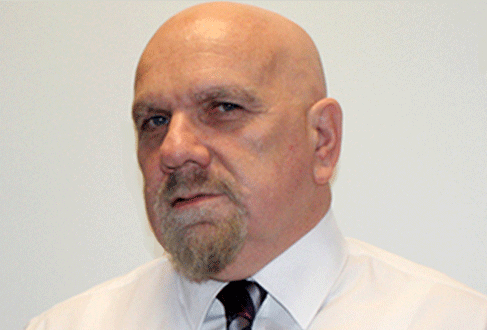BETWEEN 9 and 14 December, the parties to the Kimberley Process hold their plenary in Brisbane, Australia.
The meeting will no doubt be very well-attended, if for no other reason than travelling to Brisbane will provide the ‘diamacrats’ (bureaucrats of the diamond industry) with excellent per diems (US$264, or N$3 400 per day) with which they can do their pre-Christmas shopping in a nice sunny location… much better than next year’s meeting in Europe, though the per diems will be much more (US$360 or N$5 000 per day).
For those who do not know the Kimberley Process (KP), it is perhaps one of the most ironically-named, and now possibly irrelevant institutions on the planet. It was created in 2003 to help deal with the problem of conflict or blood diamonds, in particular from Angola, Sierra Leone and the Democratic Republic of Congo.
The United Nations passed a rare unanimous resolution, calling on parties to stop the flow of conflict diamonds that were funding civil wars all over the continent. The South Africans hosted the meeting, and it was named after the town of Kimberley, where the original great African deposits of diamonds were found in the 1880s.
The choice of name stings with bitter irony, as of course the archetypal warlord Cecil Rhodes, who owned De Beers, gained his fortune from the diamond mines at Kimberley. He, in the true spirit of the many African warlords who followed, proceeded to plunder and colonise Zimbabwe with the vast fortune he had accumulated from the diamond mines in Kimberley.
So, naming a process which is supposed to deal with the use of diamonds to fund war after the very town which is the very home of diamond-funded plunder, shows at least a great sense of humour.
As so many participants have noted, the KP was useless from the outset because each shipment of diamonds had to be accompanied by a Kimberley certificate, which in turn was issued by the national government of the exporting country, and over the years has proven to be a fantastic source of reasonably-sized bribes for the diamacrats who control the issuance of these certificates.
One of the great benefits of the KP has been that it has forced members to divulge some approximation of the amount of diamonds flowing in and out of their jurisdictions. In many jurisdictions, this data is completely inconsistent. For the first time, though, the world has some, albeit imperfect, idea of just how many diamonds are being produced and traded in the world.
But that is probably its greatest success. It is an institution which no longer has a function, as the very wars that gave rise to blood diamonds have largely come to an end, and as most diamond experts will tell you, we are continuing a process that is useless, using a great deal of money to do so.
For at least three years, the developed countries, along with the NGOs, have wanted to reform the Kimberley Process.
An important paper was prepared by the so-called Harvard group over three years ago, and pushed by the developed countries in the process in the USA, EU, Canada and the NGOs which aimed to extend the mandate of the Kimberley Process to cover not just blood diamonds, but those which were unethically mined and processed i.e. Marange diamonds from Zimbabwe, which were alleged to be using labour under conditions close to slavery.
This may be a laudable objective, along with assuring that the issuance of Kimberley certificates is something other than a joke. But the problem is that those who lose financially from reform sit around the table, and are opposed. Moreover, many African countries, including South Africa, Namibia and Angola, see the attempt by the USA and the other developed countries to introduce ethical as opposed to blood diamonds as a way of controlling trade and African countries.
The African countries are right, but that does not mean that introducing KP certificates for so-called ‘ethical diamonds’ would not benefit the market for mined diamonds of some countries. But the problem goes much deeper than just a dispute over ethics.
The mandate of the KP comes from two institutions, the UN and the World Trade Organisation, and the latter had to grant a waiver to this obvious restriction on trade. The WTO members agreed to this because they had all agreed at the UN to stop blood diamonds.
If by some political miracle all Kimberley Process members were to agree at Brisbane to extend the mandate to cover not just blood diamonds but unethically mined diamonds, they would have go back to the WTO to get an extended waiver for this. It would never be granted, because developing countries would see this as a way of getting labour standards into the WTO, and that is a non-starter for many countries that have nothing to do with the diamond trade.
There is a clear and present danger to Africa’s diamond industry that can be addressed by the Kimberley Process which would require no WTO waiver. One of the weaknesses is that once a stone is polished, there is no longer a Kimberley certificate required, and what blood diamonds there are can easily enter the value chain at this point.
The diamond industry faces numerous perils of the 21st century, and these include the changing taste of the ‘millennials’ who are not as interested in gold and diamond jewellery as their parents, and second, the entry of man-made synthetic diamonds which cannot be distinguished without complex and expensive machinery, which is not 100% successful.
An important and relatively easy reform in the Kimberley Process would be to extend the certificates to cut stones. and not just rough diamonds. This could be easily justified under the existing UN/WTO mandate. This would stop the entry of what few blood diamonds are left at the cutting stage, and would ensure that synthetics are not entering the market as only a mined diamond would be able to be sold with a Kimberley certificate.
If the Western diamacrats waste Africa’s time at Brisbane with a sterile and unwinnable debate over ethics, then the real victim will be the future of the diamond industry, which has a unique opportunity to stamp out the illegal entry of synthetics through a reform that is both within its existing mandate and in everyone’s interest.
If a win-win reform such as this cannot go through the Kimberly Process, then euthanasia for the KP is a preferred option.
Stay informed with The Namibian – your source for credible journalism. Get in-depth reporting and opinions for
only N$85 a month. Invest in journalism, invest in democracy –
Subscribe Now!










